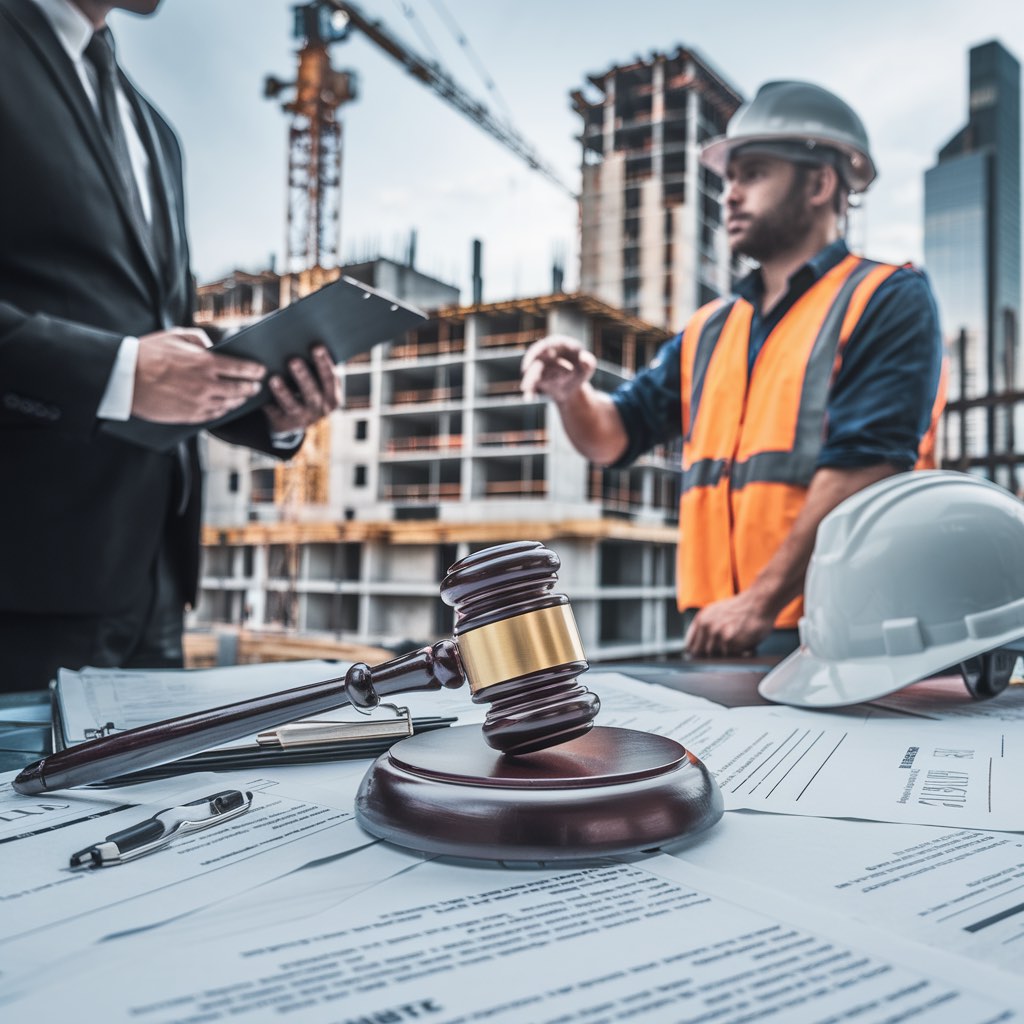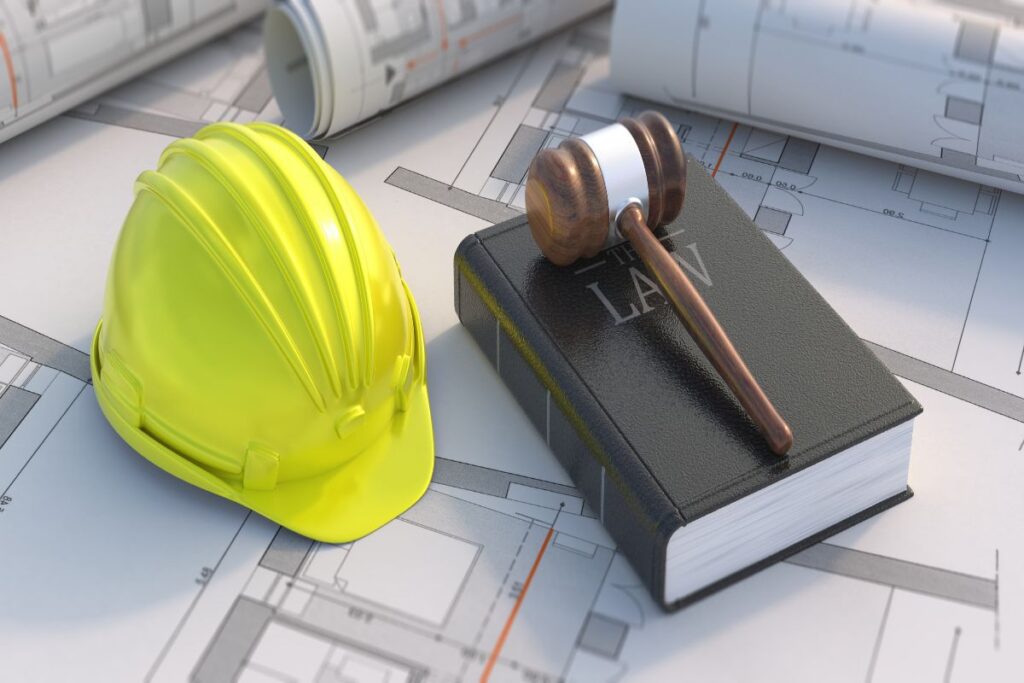In the dynamic world of construction, disputes can arise unexpectedly, leading to significant complications in projects. Engaging the services of a building lawyer is crucial for individuals and companies navigating these legal waters. This article delves into the essential roles and responsibilities of a building lawyer, particularly in the context of Sydney’s unique legal framework.
Understanding the Role of a Building Lawyer
A building lawyer sydney plays a pivotal role in the construction industry by providing legal expertise and guidance throughout various stages of construction projects. Their responsibilities encompass a wide range of legal matters, from drafting contracts to representing clients in disputes. Understanding these roles is essential for anyone involved in construction.
Key Responsibilities of a Building Lawyer
The primary responsibilities of a building lawyer include advising clients on construction law, negotiating contracts, and representing them in disputes. They also help ensure that all contractual obligations are met, minimizing the risk of litigation. Additionally, building lawyers can assist with compliance issues, offering invaluable insights into the legalities surrounding building codes and safety regulations.
Moreover, building lawyers often prepare and review documentation related to various construction phases, such as planning approvals, contracts with subcontractors, and warranties. Their expertise not only aids in preventing legal issues but also enhances overall project efficiency. They are also instrumental in conducting due diligence, which involves assessing potential risks associated with a project, such as environmental concerns or zoning laws, ensuring that clients are well-informed before proceeding.
The Importance of Legal Expertise in Construction
Legal expertise in construction is crucial for many reasons. Firstly, the construction sector is beridden with complexities that necessitate a thorough understanding of legal jargon and implications. A building lawyer is trained to interpret laws effectively, ensuring compliance and reducing the risk of costly mistakes.
Furthermore, having legal representation can lead to more favorable contract terms. A knowledgeable lawyer can negotiate on behalf of clients, securing better outcomes and protecting their interests vigorously. In situations where disputes arise, this legal expertise can make a significant difference in achieving resolutions promptly and efficiently. Building lawyers also play a vital role in alternative dispute resolution methods, such as mediation and arbitration, which can save clients time and money compared to traditional litigation. Their ability to navigate these processes can lead to more amicable outcomes, preserving professional relationships while addressing grievances effectively.
Navigating Construction Disputes with a Building Lawyer
Construction disputes can stem from various issues, ranging from contract breaches to substandard work quality. Navigating these disputes is often a daunting task, but with the assistance of a skilled building lawyer, clients can find clarity and direction.
Common Types of Construction Disputes
There are several common types of construction disputes that can arise during a project. These include payment issues, claims for damages, delays, variations in work scope, and contractual breaches. Each of these disputes requires a tailored approach, and a building lawyer is equipped to address them effectively.
Additionally, disputes may arise from misunderstandings between parties regarding contract terms. Such situations necessitate precise communication and negotiation skills to reach an amicable resolution, highlighting the need for experienced legal guidance. For instance, a contractor may interpret a clause differently than the client, leading to disagreements over project timelines or payment schedules. These misinterpretations can escalate into larger conflicts if not addressed promptly and clearly.
The Process of Resolving Construction Disputes
Resolving construction disputes typically involves a structured process. Initially, negotiations may be attempted to settle the disagreement amicably. If negotiations are unsuccessful, mediation or arbitration may be pursued, providing a non-litigious avenue for resolution.

If these methods do not yield a satisfactory outcome, litigation may become necessary. In such cases, a building lawyer’s expertise is invaluable. They can represent clients in court, presenting evidence and arguments effectively to advocate for their clients’ rights and interests. Furthermore, a building lawyer can assist in gathering necessary documentation, such as contracts, correspondence, and expert testimonies, which are crucial in establishing a strong case. This meticulous preparation not only enhances the chances of a favorable outcome but also helps in minimizing the time and costs associated with prolonged disputes.
Moreover, the role of a building lawyer extends beyond just legal representation. They can provide clients with strategic advice on how to avoid disputes in the future, including tips on drafting clearer contracts and maintaining open lines of communication throughout the construction process. By fostering a proactive approach, clients can mitigate risks and ensure smoother project execution, ultimately leading to successful outcomes and satisfied stakeholders.
The Value of a Building Lawyer in Sydney
Choosing a building lawyer in Sydney comes with distinct advantages due to their specific understanding of local laws and regulations. This localized knowledge can significantly impact the handling of construction-related legal matters.
Local Knowledge and Its Impact on Construction Law
Construction laws can vary significantly from one jurisdiction to another. A building lawyer in Sydney is familiar with the local legislation, building codes, and industry practices, allowing them to offer advice that is both relevant and effective. This local expertise can prove crucial in ensuring compliance and preventing disputes. Also you can get about why construction lawyers are essential for your building project
Moreover, understanding the nuances of Sydney’s construction market can help lawyers anticipate potential issues and recommend proactive measures. Their insights can be vital in leading projects to successful completion. For instance, they can provide guidance on environmental regulations specific to Sydney, which are increasingly important as sustainability becomes a priority in construction projects. This knowledge not only helps in adhering to legal requirements but also positions clients favorably in a market that values eco-friendly practices.
The Benefits of Hiring a Sydney-Based Building Lawyer
Hiring a Sydney-based building lawyer offers numerous benefits, including personalized service and local support. Such lawyers often have established relationships with local regulatory bodies and industry professionals, which can facilitate smoother project processes.
Furthermore, their familiarity with local court systems and precedents provides a strategic advantage during dispute resolution. This enables them to devise tailored strategies that align with the specific challenges faced by clients in the Sydney construction landscape. Additionally, a building lawyer can assist in negotiating contracts that reflect the unique dynamics of the Sydney market, ensuring that all parties are protected and that the terms are clear and enforceable. Their role extends beyond mere legal advice; they become essential partners in navigating the complexities of construction projects, helping clients to mitigate risks and capitalize on opportunities that may arise throughout the project lifecycle.
Choosing the Right Building Lawyer for Your Needs
Selecting the right building lawyer is crucial for effectively addressing construction-related legal matters. The right lawyer can make a substantial difference in the outcome of a case or project. Therefore, clients should consider several key factors when making their choice.
Essential Qualities to Look for in a Building Lawyer
When searching for a suitable building lawyer, clients should prioritize qualities such as experience, knowledge of construction law, and strong communication skills. An experienced lawyer will have a comprehensive understanding of the potential pitfalls in construction projects and the best practices to mitigate risks. This expertise often comes from years of handling diverse cases, which equips them with insights that can be invaluable during negotiations or litigation.

Additionally, the ability to communicate effectively—both verbally and in writing—ensures that clients’ needs and concerns are thoroughly understood and addressed throughout the legal process. Trust and rapport are also essential, as these qualities foster a collaborative relationship that can significantly benefit clients. A lawyer who is approachable and willing to explain complex legal jargon in layman’s terms can make the entire process less daunting for clients, allowing them to feel more confident and informed about their legal standing.
Questions to Ask When Hiring a Building Lawyer
Before hiring a building lawyer, prospective clients should ask pertinent questions to gauge their fit. Questions may include:
- What is your experience with construction law?
- Can you provide references from past clients?
- How do you approach negotiation and dispute resolution?
- What are your fees and billing practices?
Asking these questions allows clients to assess the lawyer’s qualifications, approach, and overall compatibility, ensuring an informed decision. Furthermore, clients should inquire about the lawyer’s familiarity with local building codes and regulations, as these can vary significantly from one jurisdiction to another. A lawyer who is well-versed in local laws will be better equipped to navigate the specific challenges that may arise in a construction project.
It may also be beneficial to discuss the lawyer’s experience with alternative dispute resolution methods, such as mediation or arbitration, which can often be more cost-effective and quicker than traditional litigation. Understanding how a lawyer handles disputes can provide insight into their strategic thinking and problem-solving abilities, which are critical in the fast-paced world of construction law. By thoroughly vetting potential lawyers, clients can ensure they find a legal partner who not only understands the intricacies of construction law but also aligns with their specific needs and goals.
The Legal Landscape of Construction in Sydney
Understanding the legal landscape of construction in Sydney is essential for anyone involved in the industry. It encompasses a range of laws and regulations that govern construction practices, contracts, and dispute resolution.
Understanding Sydney’s Construction Laws and Regulations
Sydney’s construction laws are designed to protect the interests of all parties involved in construction projects. These laws include zoning regulations, safety standards, and environmental considerations. Keeping abreast of these regulations is crucial to ensure compliance and avoid potential liabilities.
Additionally, changes to laws and regulations may occur, making it important for construction stakeholders to stay informed. A building lawyer helps clients navigate these complexities, ensuring that they adhere to current legal requirements.
How a Building Lawyer Can Help Navigate Legal Complexities
A building lawyer’s role in navigating legal complexities cannot be overstated. They provide invaluable guidance on contract formulation, ensuring that terms are clear and protective of their client’s interests. They also assist clients in understanding their rights and obligations under various laws.
Furthermore, should disputes arise, a building lawyer is prepared to advocate fiercely on behalf of their clients, drawing on deep knowledge of construction law and past case precedents. Their proactive approach helps clients avoid pitfalls, stay compliant, and achieve desirable outcomes in their construction ventures.
